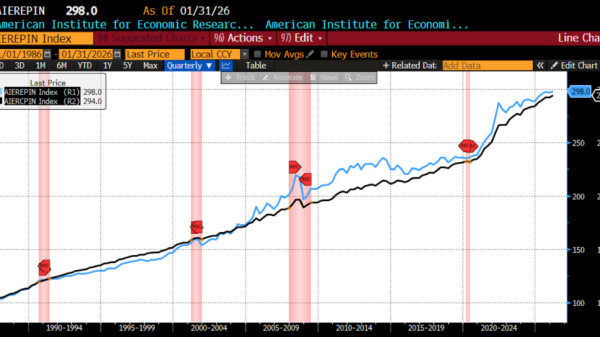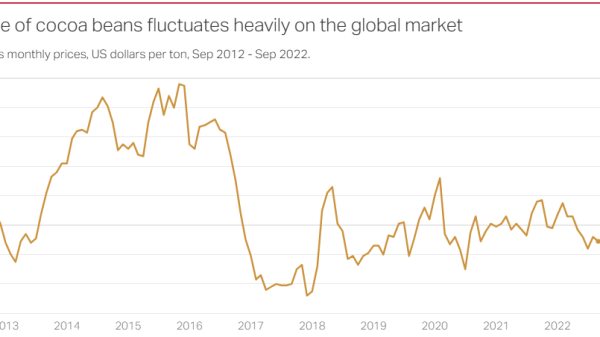If I were to sum up the mindset of New Yorkers who elected Zohran Mamdani as mayor of New York City, it would be We want something for nothing, and we want the rich to pay for it. Instead, they will get nothing for something, and they will pay for it with a degraded quality of life.
Mamdani’s victory was paved with ingratitude for the blessings New Yorkers receive daily. The mindset demanding “something for nothing” from society is not just a political phenomenon, but a profound lapse in economic understanding and moral character.
Frédéric Bastiat, in his Economic Sophisms, brilliantly exposed what many don’t understand. He wrote, “On entering Paris, which I had come to visit, I said to myself: Here are a million of human beings, who would all die in a short time if provisions of every kind ceased to flow towards this great metropolis.”
Bastiat explains that our “imagination” can’t even encompass “the vast multiplicity of commodities” that must enter daily to stop Parisians from starving. “And yet,” Bastiat pointed out, “all sleep at this moment, and their peaceful slumbers are not disturbed for a single instant by the prospect of such a frightful catastrophe.”
That was written in 1845; today, the complexity of the economy to keep Parisians (and New Yorkers) alive and well has increased exponentially. Yet, if there were a Gallup survey tracking the gratitude of New Yorkers from 1847 to today, I would bet that gratitude has declined.
In Economic Harmonies, Bastiat wrote of a person of modest circumstances, “It is impossible not to be struck by the disproportion, truly incommensurable, that exists between the satisfactions this man derives from society and the satisfactions that he could provide for himself if he were reduced to his own resources.”
Given that fact of life, is ingratitude a sign of an ignorant and arrogant mind? After all, as Bastiat added, “I make bold to say that in one day he consumes more things than he could produce himself in ten centuries.”
Insightfully, Bastiat added that this gift of riches from others doesn’t come at the expense of anyone else: “What makes the phenomenon stranger still is that the same thing holds true for all other men. Every one of the members of society has consumed a million times more than he could have produced; yet no one has robbed anyone else.”
In short, the win-lose mindset that some employ to justify their ingratitude is nonsensical. Of course, it is not only New Yorkers who exhibit this illiberal, ungrateful mindset. I call this the win-lose mindset illiberal because it is incompatible with the win-win mindset necessary for a free society to flourish.
Ingratitude is not a new issue for humanity. In his Letters on Ethics #81, the Stoic philosopher Seneca wrote, “You complain that you have encountered someone who was ungrateful. If this is the first time, then you yourself should be grateful either to fortune or to your own efforts.”
Expressing gratitude is self-rewarding. Seneca taught, “We should make every effort to show all the gratitude we can.” Not because we will be rewarded in kind, but “every virtue is its own reward. For one doesn’t practice the virtues in order to receive a prize: the reward for right action is having acted rightly.”
Having cultivated a grateful mindset, Seneca assured, “You have gained something wonderful… the best possible state of mind…a thankful heart.”
Suppose you are not grateful at this moment. Seneca’s words will pour a bucket of ice water on your ingratitude: “No one can be in his own good graces if he is not grateful to others. Do you think I am saying that the ingrate will eventually be miserable? I am not granting him any delay: he is miserable right now.”
If that warning doesn’t sink in, Seneca pointedly instructed, “We should avoid ingratitude not for the sake of others but for our own sake. Only the smallest and lightest portion of one’s wickedness overflows onto others; the worst of it — the thickest part, as it were — remains in the vessel to choke the possessor.”
If we are being “choked” by our ingratitude, wouldn’t it be wise to do something about it?
In his book On Benefits, Seneca explained why we are ungrateful: “It is either an excessive regard for oneself — the deeply ingrained human failing of being impressed by oneself and one’s accomplishments — or greed or envy.”
“Everyone is generous when judging himself,” Seneca observed, “which is why each person thinks that he has earned all that he has…and that his real value is not appreciated by others.”
“Greed,” Seneca explains, “will not allow anyone to be grateful. Nothing that is given is ever enough to satisfy undisciplined hopes; the more that comes to us, the more we want.”
Envy, Seneca explains, “is a more violent and relentless” emotion. Envy, “unsettles us by making comparisons” and “never makes the case for someone else but always puts its own interests ahead of everyone else’s.” We fixate “our attention [on] the good fortune of people who are ahead of us.”
Seneca believed, “There are many kinds of ungrateful people, just as there are many kinds of thieves and murderers.” To be clear, not all New Yorkers are ingrates, and not all ingrates reside in New York. Everywhere, there are people who deny receiving the benefit of those who provide goods and services on their behalf. Seneca taught that the “most ungrateful of all is the person who forgets that he received it.”
How could we deny or forget the benefits of modern life? Seneca explained, “We are constantly preoccupied with novel desires; we do not consider what we have but only what we are trying to get.”
In short, ingratitude stems from a fundamental distortion of perception: the ungrateful person either overestimates their own merit, focuses constantly on unfulfilled desires, compares themselves jealously to others who received more, or becomes so absorbed in pursuing new objects of desire that they forget past benefits entirely. Each cognitive cause reflects a failure to perceive and appreciate what one has actually received.
Because we’re busy keeping score of what we think we are owed, we ignore what is in plain sight. We ignore the win-win ties that bind us all and upon which our survival depends. Mamdani’s world is one where the ungrateful take from others and still complain that they want more. If it sounds like a world governed by “democratic socialists” is unsustainable, it is.
If we choose to be a sulking, mentally small, ungrateful ego, then our capacity to create meaning in our lives will correspondingly diminish.
Seneca gave us this guideline for living: “It is impossible for anyone to feel envy and gratitude at the same time; envy is what gloomy complainers feel, but gratitude is accompanied by joy.” Seneca encouraged those who cultivate gratitude to be “stubbornly optimistic” that the ungrateful will have a change of heart. Without that optimism, Seneca warned, “human endeavor would cease.”



























